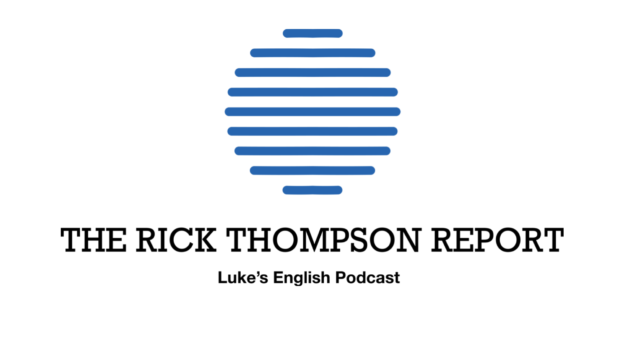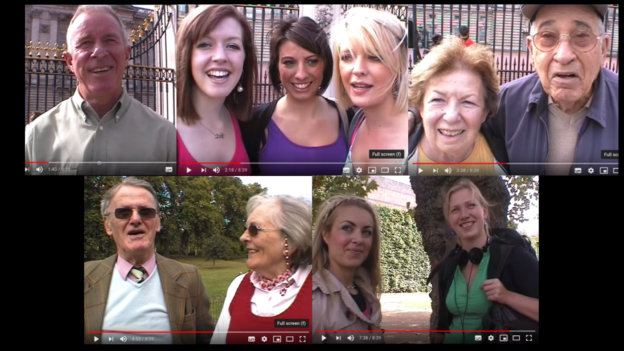Australian journalist and podcaster Oliver Gee returns to LEP to tell us some stories about the Notre Dame Cathedral fire, meeting famous comedians as a journalist, learning Swedish and French and his honeymoon tour of France on a 50cc Vespa scooter.
![]() [DOWNLOAD]
[DOWNLOAD]
Introduction Transcript
Welcome to episode 599 of Luke’s English Podcast, a podcast for learners of English presented by me, Luke Thompson an English teacher and comedian from England now living in Paris.
In this episode you’re going to hear a conversation I recorded last week here in my flat. The conversation is with my friend Oliver Gee who is a journalist and podcaster, from Australia now also living in Paris.
As some of you will remember, Oliver has been on the podcast before, in episode 495, over 100 episodes ago. Can you believe it!? In that episode we talked all about Australian things, including Australian English, so while you’re listening to Oli’s voice and you’re wondering about his accent and other Australian things, check out episode 495.
Oliver is a podcaster and YouTuber who makes content about Paris and France, in English. Recently I joined Oliver on one of his live YouTube video walking tours in Paris, which you can find on the page for this episode and it was a lot of fun talking to him and I thought it was high time I invited him back on the podcast for a chat and to tell us some stories.
And, as a journalist, Oliver is very interested in stories. That’s what journalism is about a lot of the time – finding stories, covering stories, reporting stories and generally reporting events in the form of stories. So, that’s what I wanted from this conversation. I wanted Oliver to tell us some stories – not bedtime stories or fairy tales. I’m talking more about true stories of people’s lives, moments that people experience, big events that happen in the world, etc.
We communicate so much of what we do and see via stories – either in the media, or in the way we just talk to each other and describe things. Stories are central to the way we communicate with each other.
So, the focus for me in this conversation was to let Oliver tell us some of his stories, and I wanted to hear him speak about these things in particular:
The Notre Dame Cathedral fire
When the world-famous Notre Dame Cathedral in Paris caught fire recently (you must have seen it in the news) Oliver went down to the cathedral with his camera in order to see and record what was happening and to capture the moment. He also interviewed to a tour guide all about it for his podcast in which they described it in full detail. So, Oliver can tell us about what he saw that evening, generally what happened at the cathedral and what’s happening next and there are some pretty weird coincidences in his story too. In fact there are quite a of weird coincidences and special moments described during this episode.
Meeting famous comedians
I also wanted stories about Oliver’s time working as a journalist, how he started and particularly moments when he ended up meeting some famous people – especially comedians that we’re big fans of.
So listen on to find out who Oliver has met, how he met them and what they were really like in person. There’s one comedian who is particularly famous at the moment. Oliver got to meet him in really quite an intimate situation, and I love the story.
Learning Swedish & French
Oliver has lived in Sweden and now lives in France, so I wanted him to tell me about his experiences of learning languages, particularly moments when he felt challenged and when he’d made significant progress.
The honeymoon tour of France on a scooter
And finally, there’s the story of Oliver’s honeymoon road trip around France on the back of a scooter. Imagine two newly married people travelling all around France, even crossing over the alps, all on a small 50cc Vespa scooter. Listen on to find out what happened.
So those are the main topics – Notre Dame Cathedral, meeting famous people, learning languages and a honeymoon road trip. There’s also some chat at the start about my podcast as Oliver noticed that LEP has had over 50 million downloads in total and I’m approaching episode 600. So we talk a bit about podcasting vs using YouTube as different platforms for what we do.
We’re about to jump into the conversation now, just before we do let me prepare you a little bit because the conversation starts quite quickly.
In episode 495, if you remember, we said that the better people know Oliver, the shorter his name becomes. This is normal. It’s like nicknames. So, acquaintances probably call him Oliver, then friends call him Oli, then close friends might call him Ol, then really close friends might just call him O.
I just wanted to remind you of that, because it’s the first thing you’ll hear, so you might immediately get lost and go “Wait, what? I’m lost already!”
The better people know you, the shorter your name becomes. That’s how this begins.
Alright, so now you’re ready, let’s go!
Ending
So that was Oliver Gee on the podcast again. I really hope you enjoyed that conversation full of stories. If you struggled to understand everything that was said I just want to say congratulations and well done for listening all the way through to this point. I know sometimes it is difficult to follow these long, fast conversations on my podcast but I truly believe that you can make progress if you manage to just keep listening. Sometimes you’ll get lost and not understand, but try to tolerate the bits that you can’t understand and use the bits that you do understand to help you guess the rest and keep going. The best language learners persevere even when things aren’t completely clear.
Stay positive, keep it up.
As ever I look forward to reading your comments in the comment section if you have anything to share or any thoughts regarding any of the things that came up in this episode.
On the episode page you will find loads of links and videos relating to the things we talked about in this conversation, including… (links all listed below)
So this is the end of episode 599. Episode 600 will be the next one.
I hope you can join me for the YouTube live stream when I will be recording episode 600.
That is going to happen at 3PM (CET) on Friday 7 June on my YouTube channel. You’ll find the link to that on the front page of my website in the comment section.
If you can’t attend the live stream, then I am sorry! You will be able to watch the video later and obviously listen to the audio in episode 600.
The theme of the live stream is “Ask me anything” (although I do reserve the right not to answer questions if I don’t fancy it, like “what colour is your underwear?” “Mind your own business!” or “What are your credit card details?” etc. You can ask me questions about English or whatever comes to you and I will try to answer the questions as best I can, and as briefly as I can in the time we have available.
Also, premium subscribers – premium episodes are coming! I’m working on several premium series at the moment, and so June will see more premium stuff and less free stuff.
OK then, that’s it! Until episode 600 I will now say, good bye bye bye bye bye…
Links
Oliver’s episode about Notre Dame Cathedral (The Earful Tower Podcast)
Oliver’s tour of Notre Dame when it’s empty – before the fire (The Earful Tower)
When Notre Dame Cathedral caught fire (France 24 News)
Oliver’s video of Parisians singing hymns while Notre Dame burns (The Earful Tower)
My walking tour with Oliver in the Square des Batignolles (5 minute version)
Bill Bailey does comedy about minor and major keys in music
LEP #462 British Comedy: Bill Bailey
A clip from Russel Brand’s Netflix Special (I think this is the one that Oliver & his wife attended)
Oliver’s live walking tour / interview with French model/author/music producer Caroline de Maigret (The Earful Tower)
Exciting times ahead for The Earful Tower podcast. Nice to meet you, @rustyrockets! pic.twitter.com/LDIRSl3smh
— Oliver Gee (@olivergee23) April 21, 2018
Le Moron. Population one. pic.twitter.com/nePFdqqMdr
— Oliver Gee (@olivergee23) September 18, 2018








